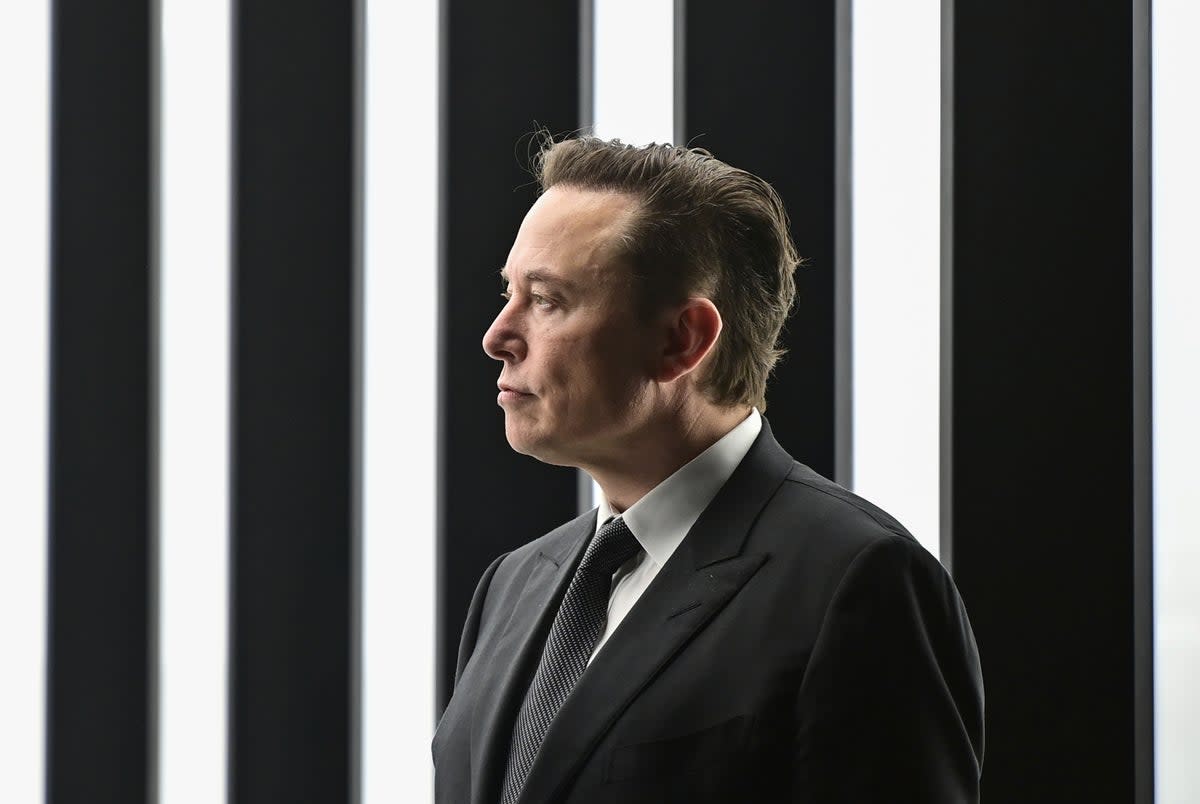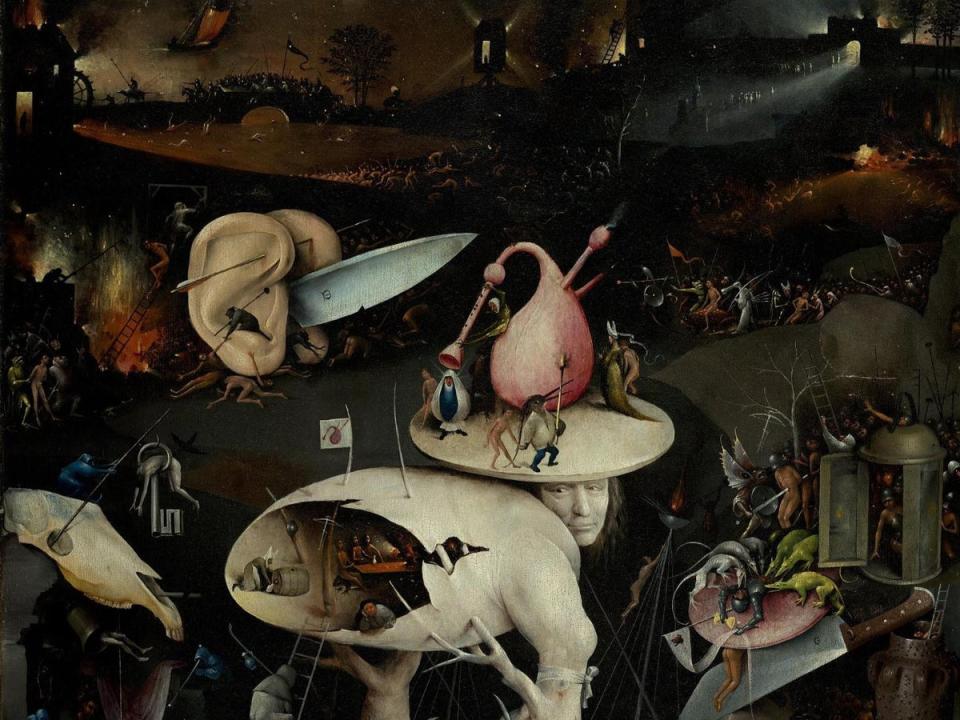Voices: Elon Musk may be one of the worst people on Earth to fix Twitter’s biggest problem

- Oops!Something went wrong.Please try again later.
Hellsite. That is the word so often chosen by Twitter users to describe the website where, for their sins, they sink so much time. It is also very close to the word that tech tycoon Elon Musk used on Thursday night when he finally confirmed that he would buy the social network, which he promised not to turn into a "hellscape".
That echo underscores the colossal challenge Musk now faces. For years, Twitter has been commercially hamstrung by its failure to attract new users at anything like the scale and speed of Facebook, Instagram, or TikTok.
According to Pew Research, even though 22 per cent of US adults use Twitter, most of them almost never tweet or ‘favourite’ tweets by others. Another poll by YouGov found that 53 per cent of US citizens have an unfavourable opinion of Twitter, more than any other company the poll asked about.
Not coincidentally, regular Twitter users – myself included – tend to experience the site as a relentless misery machine that tries with Terminator-like devotion to entangle them in each day's most inane and insoluble controversy. When JK Rowling writes a novel about how unpleasant your product is, you know you have a problem.
Musk, also a heavy Twitter user, appears to be aware of this, promising on Thursday night to restore "digital town square, where a wide range of beliefs can be debated in a healthy manner". Unfortunately for all of us, his past conduct on Twitter suggests that he is among the worst people on Earth to try and fix it.
Dear Twitter Advertisers pic.twitter.com/GMwHmInPAS
— Elon Musk (@elonmusk) October 27, 2022
What do people mean when they call Twitter a hellsite? At its best, the service is amazing, giving instant public access to world-class expertise and unparalleled opportunities to connect like-minded peers. Nor do many social networks afford minority groups such power to organise and find community.
But it's also dogged by design decisions – some dating from the company's early days – that continually pull users towards content that makes them feel furious, terrified, depressed, or all three at once.
Start with Twitter's basic structure, which combines the worst aspects of spoken and written communication. The ease of making a tweet, the short character limit, and the transient nature of discussion make it feel like you're tossing off casual thoughts to an audience of your friends. With enough likes and retweets, though, any tweet can be boosted beyond its intended audience and, in extreme cases, into permanent public notoriety.
It's the epitome of what scholars of technology have called "context collapse", in which statements are stripped of the contextual information that we typically use to interpret them (a speech by a politician versus a 2am voicemail from your best mate).
The introduction of quote tweets in 2015, and Twitter's subsequent commitment to keeping them as a core feature, added to this a kind of context replacement, allowing (or arguably encouraging) people to take another user's unguarded reply to a colleague or friend and broadcast it to their own audience with a hostile framing.
These issues have been exacerbated by Twitter's attempts to burnish its bottom line by juicing user engagement. In 2016, Twitter switched most users from a chronological feed – ie, most recent tweets first – to a feed organised by machine learning algorithms that attempt to select the tweets that will interest you most.
As on almost every other social network that employs such methods, these algorithms turned out to be very good at promoting strife and sensationalism. Despite Musk’s past descriptions of Twitter as a liberal echo chamber, research suggests they have a right-wing bias.
In 2019, Twitter introduced a feature called "topics", allowing people to follow particular types of news instead of just individual people. Yet here, too, Twitter's algorithms lean towards rancour.
For instance, as a transgender woman who sometimes covers LGBT+ issues, I pay close attention to discussions between trans people on Twitter. This not gone unnoticed by Twitter’s all-seeing robot eye, and it’s now almost impossible for me to use the site without being flooded by tweets about America’s rising wave of anti-trans bigotry and discrimination. On those occasional days when harassment obliges me to stay off Twitter, it’s frankly kind of a relief.

Nor is there any escape in the realm of nerdy hobbies. I follow some topics related to tabletop roleplaying games such as Dungeons and Dragons, which I enjoy. As a result, I am tirelessly bombarded with the latest fan squabbles over which game is better, or heavy political arguments about D&D's depiction of orcs and other 'monstrous' species. These algorithms can also be comically mistaken, injecting a grim tweet that happens to mention spaghetti into your timeline under the topic "food".
To be fair, it’s hard to tell how much of this is my own fault. I have no doubt that Twitter’s algorithms are to some extent mirroring my own behaviour, reflecting a measurable temptation towards nasty but compelling content. Since these algorithms are commercial secrets, we may never know how heavily they are putting their thumb on the scales.
However, Twitter's design also resists users’ attempts to mitigate their own foibles. It offers no way to hide the "trending topics" panel (another reliable fountain of mind-melting nonsense), and very little control over what its algorithms serve up. There’s a million ways to unintentionally make your experience worse, and just a handful of ways to intentionally make it better.
A few months ago I deleted the Twitter app from my mobile phone so that I wouldn’t be so tempted to check it during my leisure hours. The tactic worked, but Twitter responded by barraging me with notifications about popular tweets, many of which are precisely the kind of content I was trying to avoid. Like a retired detective, they just keep trying to pull me back in.
I consider myself a “heavy tweeter” unfortunately. I can tell you that trending topics are a toxic hellhole and Twitter constantly does not respect my preferences across features (like muted words), it’s exhausting. Also popular tweets quickly turn into toxic hellscapes. https://t.co/muxnRS8xh4
— Whitney Merrill (@wbm312) October 26, 2022
Musk's statement on Thursday night addressed this theme directly, arguing that Twitter users should be able to "choose [their] desired experience" just as they might choose to play a bright, child-friendly video game instead of a grim and gruelling one. Indeed, this is the kind of choice Twitter struggles with right now, because its algorithmic nitrous oxide injections often undermine users' attempts to clean up their own timelines.
But there's little evidence that Musk is the man to solve these problems. For one thing, his record on supporting free speech is questionable, from allegedly firing whistleblowers and union organisers to reportedly asking the Chinese government to censor social media posts on its behalf. There was also the time he tried to pay a teenager to stop tweeting publicly available information about the movements of his private jet.
Worse, Musk has a long history of courting and inflaming exactly the type of vicious controversy that makes Twitter so hellish. He regularly makes drive-by interventions into hot-button issues such as trans rights and the Canadian trucker protests, firing off "jokes" or flip one-liners that bait partisans into reacting while declining to offer any serious articulation of his actual views.
He has frequently attacked his critics, from journalists to bloggers to researchers to British cave diver Vernon Unsworth, who sued for defamation after Musk called him a "pedo" on Twitter. Although Musk's lawyers would later argue in court that this was simply an insult, and "not a literal statement of fact", he also sent emails to Buzzfeed News suggesting that Unsworth was a "child rapist" who had moved to Thailand for "child sex trafficking" (statements that were not included in the trial).
Unsurprisingly, such skirmishes have attracted a fervent and pugnacious fan base. Musk inspires – and appears to welcome – a fierce loyalty not unlike the kind that attaches to K-pop bands or Taylor Swift. Many followers seem to see him as an avatar of righteous justice against corrupt elites. The devotion often turns toxic, with journalists and researchers who write critically of Tesla being swarmed by Tesla devotees who defend the company in terms ranging from earnest to abusive.
Those whom Musk replies to or mentions on Twitter become particular targets. This April Twitter's head of policy and legal affairs Vijaya Gadde, who was closely involved in the company's decision to ban Donald Trump, received torrents of racist invective after being publicly blasted by Musk.
Meanwhile, many in the online far right – which has always played outsize role in chasing ethnic and sexual minorities off Twitter – have adopted Musk as their champion, hoping for a relaxation in the limited and erratic content moderation they currently face.
Taken together, are these the actions and qualities of a man committed to restoring healthy dialogue? Or do they suggest that, when all’s said and done, Elon Musk feels quite at home on the hellsite?
Io Dodds is a tech reporter based in California

